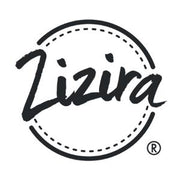Here is the next part of the story of Zizira.
We Learnt from a Failure
I gave you the background; spoke about why we diversified into agricultural products; why we wanted to open markets for Meghalaya farmers; shared with you our strategy for selecting products to sell on our eCommerce site; and why ‘Discovery’ and ‘Exploration’ became our theme.
Our website was being pumped with fresh content almost daily. We set up an eStore and soon linked it to Amazon. Our products started to get noticed and were getting sold. We were getting enquiries too, through the contact us form.
Find out what is unique about Meghalaya and the potential of the land. Download ebook.
Totally independently, we came to the notice of a large US-based company with operations in India. It happened through a chance meeting I had with a senior executive. Zizira got pulled into a big project, that too in the very early stage of our operations. The team was extremely charged up and excited.
Unfortunately, the project failed. This company worked with us to source turmeric. We worked hard to purchase the spice from about 50 farmers and delivered dried turmeric, but our payment got stuck! Why? The mistake was ours - we erred by getting in too deep before understanding all the processes to follow. This failure cost us heavy. But it helped us figure out what will work for us.
- We learned that we can’t make a profit by facilitating bulk buying and it is risky.
- And, we decided not to let turmeric and other crops be sold outside the state without the source being recognized. Why? We realized that the turmeric that was being sourced in bulk was going into the markets of the rest of India without an acknowledgement of its place of origin. Nobody would know that this turmeric was from the Northeast of India. Our mission was to bring people’s attention to the produce of Northeast. Hence we want to make sure the region is recognized for any and every food product that goes out from here.
As we progressed, we learnt and we refined our strategy. We changed our plans based on the lessons we learnt. We decided to make sure not to make big costly mistakes. We decided our niche was to stick with making farmers famous. Not just help them sell in bulk, without any recognition. Also, if we source in bulk, we will be no different from the many middlemen who do the exact same thing.
Aiming for Win-Win-Win for Farmers-Region-Zizira
To meet our vision, the Zizira model should work. We believe in a model that will be sustainable – that will be win-win-win for the farmers, the region and for Zizira. We need to create a successful ecommerce platform, which will make Zizira sustainable and help it thrive. In turn, making farmers of Northeast India successful and help them thrive too! In turn, make the region famous.
For the farmers – growing low volume high value could be the answer. For the region – honest, real-life report and stories about its rich bio-diversity, the unique produce and the hard-working farmers. For Zizira – creating out-of-the-ordinary product using the locally grown produce, delivering quality to customers and making its eCommerce platform robust. Team Zizira is working towards these goals.
Producing in Small Batches could help
We had ideas on how to select products for our eStore and the list of products was growing. We were now considering making a variety of products in small batches, rather than bulk produce. We want to rotate products, in line with the seasons. This rotation of products will give us a chance to experiment and discover what people want, while creating a high-end brand.
Zizira products will be pure and healthy but also limited, because we will sell what is available at that time. This is a different concept. This means we would not focus on one product but be able to make small batches of a variety of products.
We would source from farmers or from department of agriculture or others. Let’s say the department of agriculture is growing something new. We will buy it from them process/package and sell. More on this in my next post.


